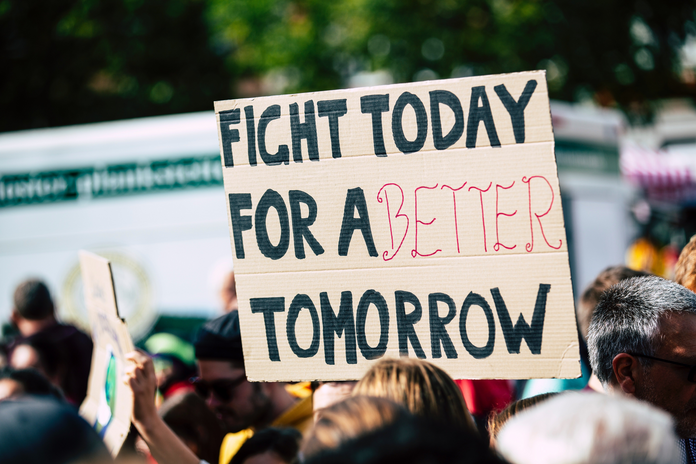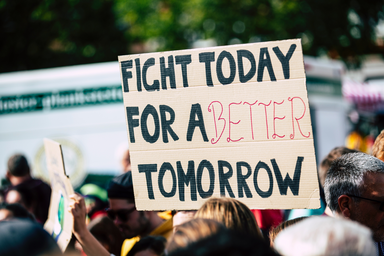Does youth truly have this important role in history? Can we actually change the world through our choices? Let’s understand better the impact youth have had over the years and how they can still change the course of things.
Throughout history, young people have been the main characters in social movements, such as the U.S. Civil Rights movement, the LGBTQ+ movement, the feminist struggle, the labor, antiwar, and immigrant rights movements. All over the years, youth has been seen as the key for change, but do we still embrace this role nowadays?
Elections that were changed by youth
Beyond all the social movements, young adults have directly impacted some elections around the world. When mobilized and engaged, young people have the power to sway elections and shape the political landscape, often pushing for progressive change. The following list is not exhaustive, and there are many examples worldwide. However, here are some cases that highlight the growing influence of young voters.
Chile, 2021:
Gabriel Boric, a former student protest leader, won the presidency with strong support from young voters who connected with his progressive agenda on issues like education reform, social justice, and environmental protection. This election marked a generational shift in Chilean politics, since Boric became Chile’s youngest-ever president.
Brazil, 2022:
The Brazilian presidential election of 2022 was marked by a significant growth of young voters, mostly motivated by the polarization between the left and right-wing candidates, Luiz Inácio Lula da Silva, known as Lula, and Jair Messias Bolsonaro – respectively. The young population made a huge mobilization for Lula’s candidacy, in order to remove the President of the time, Bolsonaro, from power. The massive participation of youth was crucial for Lula to win.
United States, 2020:
In a case of polarization, similar to Brazil’s in 2022, the USA presidential election had a high youth voter turnout rate. The 18-29 age group played a crucial role in President Joe Biden‘s victory. This demographic favored Biden over Donald Trump by a significant margin, particularly in key swing states like Michigan, Pennsylvania, and Wisconsin.
South Africa, 1994:
On 27 April 1994, voters stood for hours to vote in South Africa’s first democratic election. The end of Apartheid and the first multiracial elections saw massive participation from young black South Africans, who were finally granted the right to vote. This historic election, which led to Nelson Mandela’s victory, showcased how the inclusion of young people, previously deprived of rights, can dramatically reshape a nation’s political landscape.
United States, 2008 and 2012:
The 2008 presidential election, which gave Barack Obama the title of the first black President of the United States, had a huge participation of young people. He won 66% of the vote among those younger than 30, due to the messages he sent, increasing hope for change in the country. This happened again in 2012, in his reelection. Barack won 60% of votes among the same age group.
Do young people actually believe in politics?
Although we’ve seen youth changing the election’s course in a lot of cases, it can be noted that young participation in political acts, such as the interest and faith in politicians, have been decreasing over the years. According to the United Nations World Youth Report of 2022, youth represents 15.5% of the world population, meaning that it has a huge impact in politics – if they wish so.
But, the same report pointed out that young people are facing serious social and economic challenges that are not used to be taken into account, since they are often excluded from policy decisions. This scenario creates a barrier between young ones and politics. Being left out of important choices, that are certainly going to have implications for their future and affect them today, is one huge discouragement to being part of the political environment.
That’s why the significant decline in young voter registration can be justified by the low levels of trust in politics. But, besides that, the level of education, the trust in non-corrupt institutions and the party identification can be other elements that also have an impact on this scenario.
What about the future?
Considering the statistics, young people are the biggest, and possibly the most influential, voting force with the power to have an effect on the outcome of the elections. It is important to highlight that the impact of youth on elections goes beyond voting, participating in debates, organizing campaigns and mobilizing on social media are some examples of how young people can influence the political debate and the outcome of elections.
Young people want a more inclusive and more participatory policy that is closer to the population. It is undeniable that youth represent abundant diversity: there are people in this age group of all ethnicities, sexualities, social classes and genders. If teenagers and young adults, together with the plurality they provide, participate more effectively in politics, the political scenario can change. The democratic process can become what it already should be: inclusive.
So, if you are young, use your ability to fight for your rights to impact positively in politics. As voters or as candidates, it is important to have young people in politics, to build a future that they are proud to be part of. The choices we make today will impact our daily lives in the future. Therefore, the younger generations must embrace their causes and create the path they want to follow.
———————–———————–———————–
The article above was edited by Duda Kabzas.
Liked this type of content? Check Her Campus Cásper Líbero home page for more!


